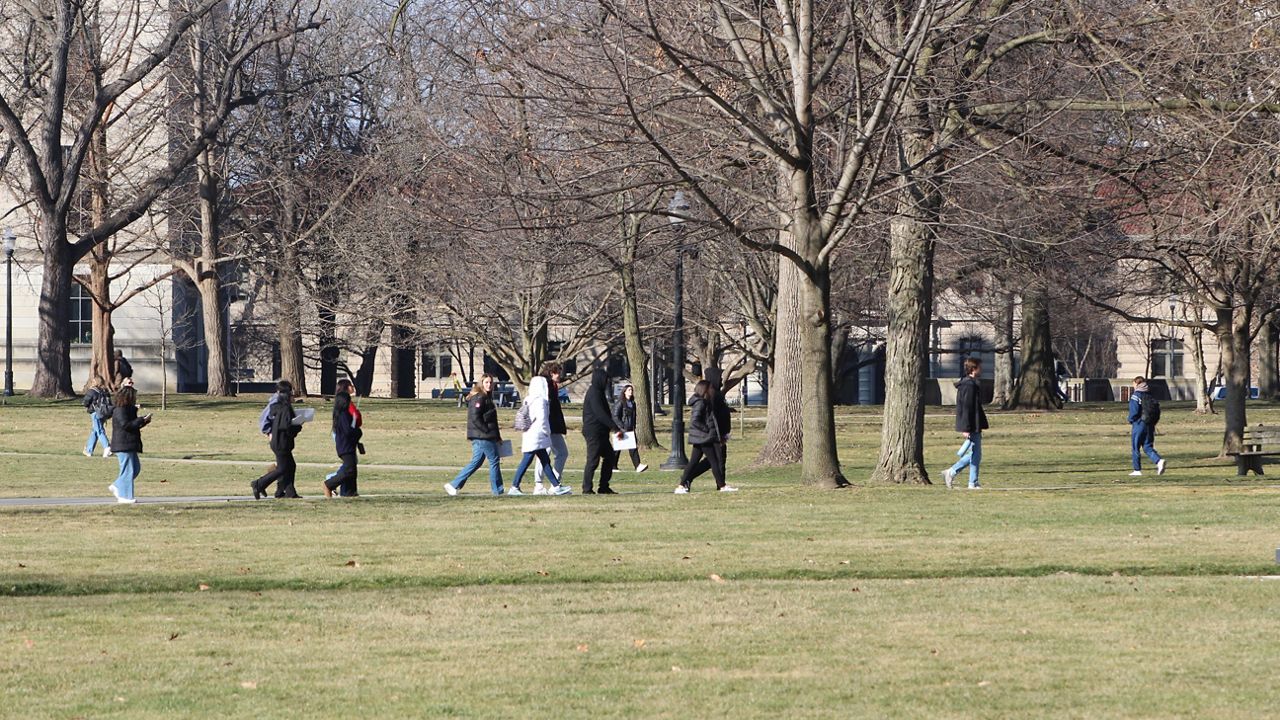OHIO — An Ohio State student’s lawsuit against the university seeking a partial refund as a result of the campus’ closure due to the pandemic has been sent back to the Tenth District Court of Appeals by the Ohio Supreme Court, according to a decision summary.
It was a 4-3 decision. The central question of this case is regarding “discretionary immunity.”
“We therefore reverse the judgment of the Tenth District regarding discretionary immunity and remand this matter to that court to determine whether Ohio State University is protected by discretionary immunity regarding its decisions in response to the COVID-19 pandemic—namely, to suspend in-person instruction, transition to virtual learning, restrict access to its campus, and provide limited refunds to students,” reads the court’s slip opinion penned by Chief Justice Sharon Kennedy.
The court’s opinion recounts the case in which a fourth-year student, Brooke Smith, filed a class-action complaint against the university and Ohio Department of Higher Education “alleging breach of contract, unjust enrichment, and conversion.”
Smith dismissed her claim against the higher education department, leaving Ohio State as the sole defendant.
The Court of Claims granted Smith’s motion to classify the case as a class action, the class being all enrolled OSU students during Spring of 2020 paying for the various tuitions and fees on campus, according to the opinion.
The university challenged both the class action certification and the Court of Claims' jurisdiction, since the university was “protected by discretionary immunity.” While an appeals court agreed “the class was improperly certified,” it did not agree with the university regarding discretionary immunity.
The heart of the disagreement is whether discretionary immunity is considered a “jurisdictional bar,” as argued by the university, or an “affirmative defense,” as argued by the court. That argument was heard by the state’s supreme court.
“We hold that discretionary immunity is a jurisdictional bar, not an affirmative defense, to suits brought against the state in the Court of Claims,” the court’s opinion reads.
The supreme court’s decision places the case in the hands of the Tenth District Court of Appeals. The decision summary explains that the court’s majority decision states discretionary immunity bars the Court of Claims from considering a lawsuit.
Chief Justice Kennedy’s opinion was joined by justices Patrick Fischer, R. Patrick DeWine and Joseph Deters.
A dissenting opinion penned by Justice Jennifer Brunner argues the Court of Claims should not be barred from “hearing or deciding whether the state is immune from suit or liability.”
“If that were the case, the mere raising of an immunity defense would negate that court’s ability to act,” the dissenting opinion reads. “Because the majority’s decision, in effect, creates this kind of rubric, I respectfully dissent.”
Justice Brunner’s opinion was joined by justices Michael Donnelly and Melody Stewart.



